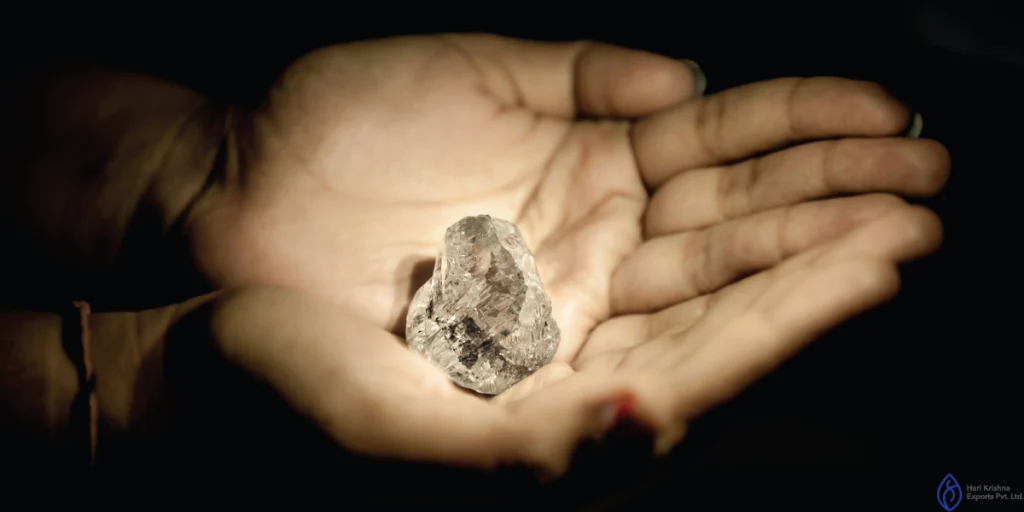Kimberley Process: Transparency and Responsible Practices in Diamond Trade
Posted by Hari Krishna
August 31, 2023
In the shimmering world of diamonds, beauty and elegance often come hand in hand with tales of controversy and unethical practices. The Kimberley Process emerges as a beacon of hope for an industry once marred by conflict and human rights abuses. It strives to bring transparency and responsibility to the diamond trade.
The Kimberley Process (KP) is an innovative and collaborative international initiative that regulates trade in rough diamonds. It seeks to eliminate the conflict diamonds, also referred to as “blood diamonds”, from the global supply chain. These conflict diamonds refer to those mined in the war zones and sold to finance armed conflicts against legitimate governments. They often leads to severe human rights abuses and contributing to regional conflict.
The Kimberley Process was initiated in May 2000 following discussions among diamond-producing countries. It received its name from the South African city where initial talks occurred. In 2003, governments, the diamond industry, and civil society formally launched it, joining forces to create a unified stance against conflict diamonds. Implementing strict diamond certification and tracking ensures ethical sourcing, production, and trade, fostering consumer confidence in diamond purchases.
The Kimberley Process operates on a unique certification system that tracks and certifies each diamond’s journey from the mine to the market. It involves a four-step process that involves:
Participant countries: The KP brings together 59 participants, representing 85 countries, including diamond-producing, trading, and manufacturing nations. These countries collaborate to implement the necessary controls and practices to ensure that conflict diamonds are not mixed with legitimate diamonds.
Internal controls: Participant countries establish strict regulations and internal controls to prevent the entry of conflict diamonds into their supply chains. It includes setting up legislation, traceability measures, and monitoring systems to ensure transparency and accountability.
Certification: Each diamond shipment must be accompanied by a Kimberley Process Certificate, providing information about its origin and confirming that it is conflict-free. The certificate is uniquely numbered, making tracing the diamond’s provenance easy.
Peer review and compliance: Participant countries undergo regular peer reviews to assess their adherence to the Kimberley Process guidelines. These reviews aim to identify any weaknesses in the system and encourage continuous improvement.
The KPCS lays down the groundwork for the entire initiative. It provides a comprehensive set of rules and regulations that participating countries must follow to maintain the integrity of the diamond trade. Under the KPCS, member countries are required to:
Establish a National Control System: Each participating country must establish a national office to oversee the diamond trade and ensure compliance with the Kimberley Process guidelines.
Import and Export Controls: Strict import and export controls must be enforced to prevent the conflict diamonds’ entry into the diamond supply chain.
Transparent Data Exchange: All countries must share relevant data and statistics on diamond production, import, and export to facilitate effective monitoring and evaluation.

Since its inception, the Kimberley Process has significantly transformed the diamond trade. By promoting transparency and responsible practices, it has:
Reduced the trade of conflict diamonds: The process has successfully reduced the flow of conflict diamonds into the market, effectively choking the funding sources for armed conflicts and rebel groups.
Protected human rights: By cutting off the financing of conflicts, the KP has played a crucial role in curbing human rights abuses associated with diamond mining and trade. Miners and communities now have a better chance of working in safer conditions and escaping exploitative practices.
Improved environmental sustainability: The process emphasises environmental sustainability in diamond mining, encouraging responsible practices that minimise environmental impact and promote reclamation and restoration.
Enhanced consumer confidence: With the assurance of ethical and conflict-free diamond sourcing, consumers can confidently purchase their precious stones. They know that they are not contributing to global conflicts or human rights abuses.
Kimberley Process and traceability are vital in the global effort to combat the trade of conflict diamonds. Traceability requires that each diamond be accompanied by a certificate verifying its origin and legitimacy. This system involves meticulous record-keeping from the mining site to the consumer market, enabling tracking of a diamond’s journey through various stages of production and distribution.
This transparency curbs the trade of conflict diamonds, promotes ethical practices, safeguards human rights. It supports the development of responsible and sustainable diamond mining communities. By upholding the principles of KP and emphasising traceability, the diamond industry can ensure that the beauty and value of diamonds do not come at the cost of human suffering and global stability.

Despite its success, the Kimberley Process faces ongoing challenges. Critics contend that the definition of conflict diamonds is too narrow and that it inadequately addresses certain human rights abuses and environmental issues in diamond mining.
As the diamond industry evolves, the process must adapt to emerging challenges and incorporate broader ethical considerations.
The Kimberley Process stands as a testament to the power of international cooperation in the quest for an ethical and transparent diamond trade.
By successfully combating the trade in conflict diamonds, this initiative has significantly contributed to protecting the reputation of the diamond industry as a whole.
As consumers, we can contribute by supporting the demand for ethically sourced diamonds. We can stay informed about the process’s progress in shaping a brighter and more responsible future for the diamond trade.
As a leading player in the industry, Hari Krishna Exports, a leading diamond manufacturer in India , is committed to upholding the principles of this vital initiative. We take immense pride in our ethically sourced diamonds, ensuring that each purchase positively impacts communities and the environment.
With consumer trust as our cornerstone, we invite you to sign in and explore our exquisite collection of natural diamonds. We know that your choice aligns with our dedication to a sustainable and responsible diamond trade. Let us continue to advocate for a world where every diamond sparkles with brilliance and integrity.
Download our hk.co app on multiple platforms, including Android and iOS.